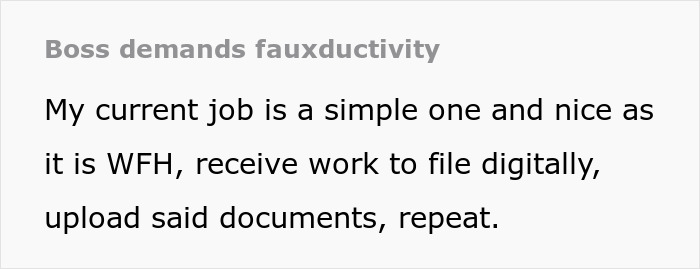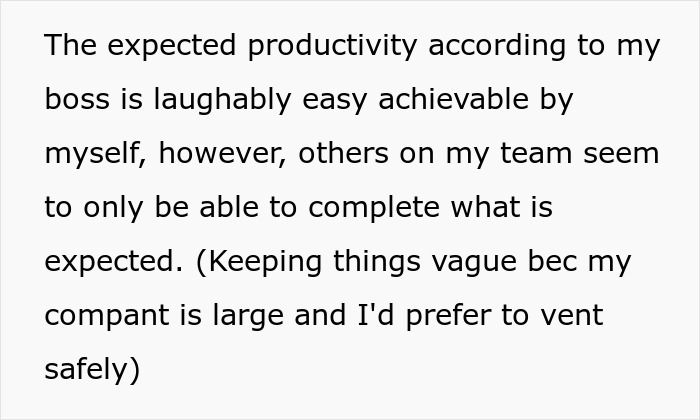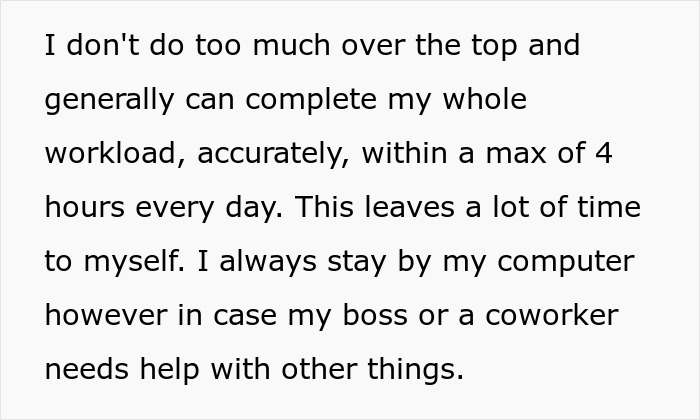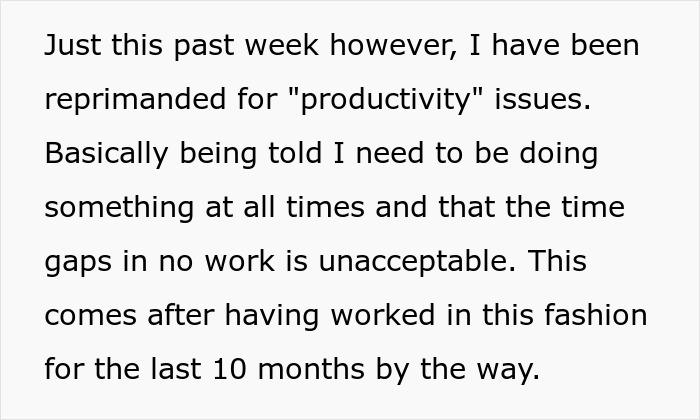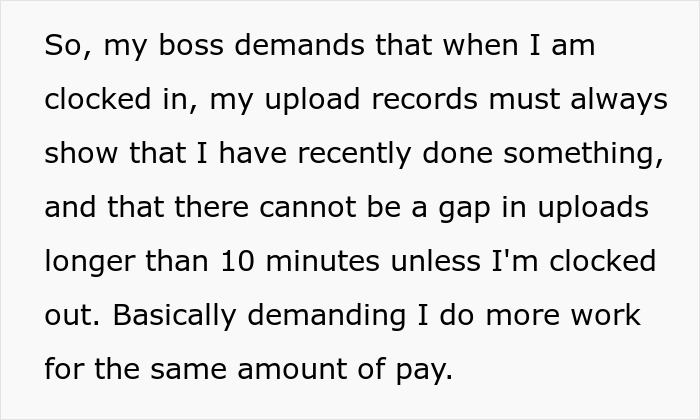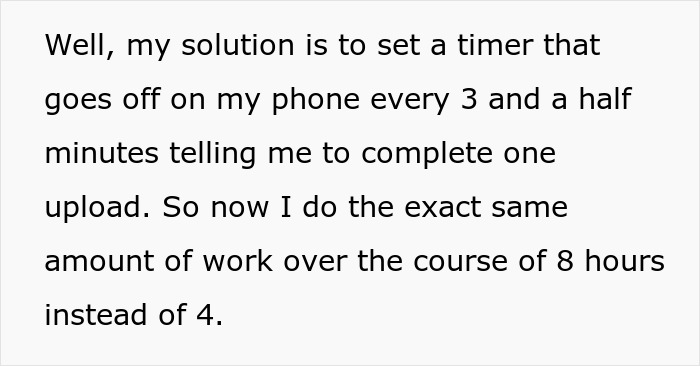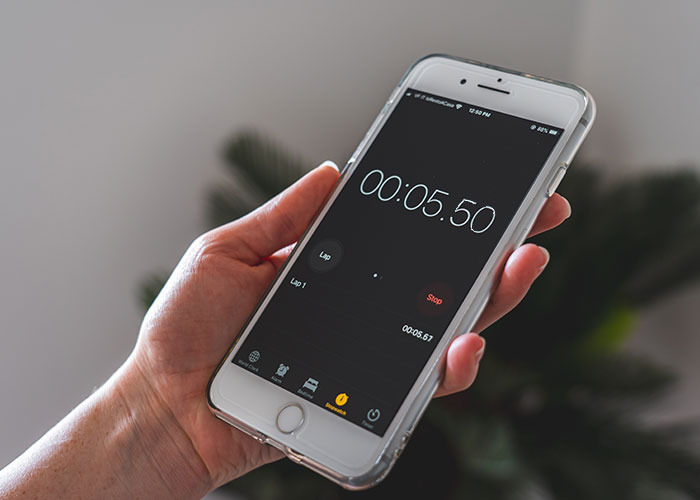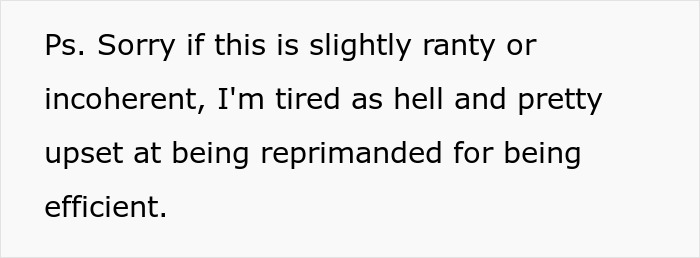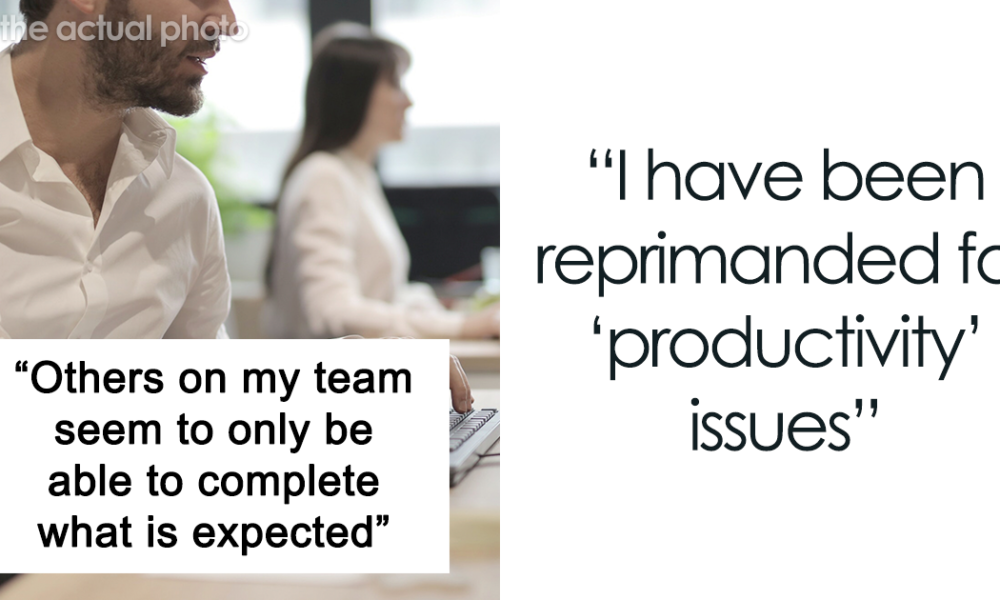
Efficient employees learned that their bosses expected them to do three times more work than their peers, and found genius ways to simulate working all day
For some bosses, looking busy is more important than actual productivity or results. Many office workers have adapted to this system, unnecessarily prolonging work and taking dozens of coffee breaks each day. On the other hand, the overworked person was confused as to why she had to pretend to work when she had already done everything necessary twice or three times as fast as others did. may remain.
This is one of the oddities with many modern white-collar companies. There is a lot of pretense going on. And one very productive redditor said, reported his first-hand experience Check this out on the r/MaliciousCompliance subreddit. He would finish their work in just a few hours. I got
Scroll down to read how they tackled this tough situation about false productivity. Panda, have you ever been in a similar situation at work? What would you do if you were the OP? Please share your thoughts in the comments.
bored panda Communicate with the author of the viral post and discuss his management practices, current 9-5 working hours, and what advice he would give to office workers who might be in a similar situation to him. We asked. Read the full interview.
Not all high achievers are rewarded for increased productivity.some are reprimanded
Image source: Andrea Piaquadio (not actual photo)
The office workers shared their bosses’ unreasonable demands, but found that they were twice as efficient as the others.
Image source: Castorly Stock (not actual photo)
“When it comes to prolonging work, I think it’s probably due to the management style of people above workers,” the post’s author opined on why employees procrastinate at Bored Panda. It depends a lot on who is in charge and what they evaluate.
“I’ve had jobs where there was a lot of downtime and managers understood that. I’ve also had jobs where downtime was seen by upper management as a ‘waste’ of time. “
A redditor shared his thoughts on the current working conditions at the office.
“We believe that we can work in shorter working hours, get the same amount of work done, and potentially be more productive. People need to come to terms with not having to work as much as we think they do,” he said.
a study he referred to saw 100 companies In the UK, the working week has been reduced to four days (aka 32 hours). Researchers found that productivity remained the same. Compensation was stable, and employees seemed to be working a standard five-day work week.
“If someone completes a job quickly and accurately and is given a heavier workload instead of being rewarded with a reward, I talk about it with leaders and the ability to complete more work is more than their salary. We encourage you to talk about what you feel should be reflected in your compensation and rewards.
“If you don’t like it or accept it, we encourage you to keep your options open to other employment opportunities.”
Some bosses, when they see someone productive and overworked, choose to throw even more work at them. But it’s clearly unfair. Because all other employees are (usually) paid exactly the same amount to do much less work.
A drag workout seems to be a form of modern office survival. This means that the office space of a large company is a discreet environment. You are more likely to be overworked than to be promoted. That said, not all companies do. Some managers really appreciate the (extra) effort and actual productivity. Unfortunately, we cannot expect everyone to be a good and fair workplace leader.
1 study A study that looked at the productivity of nearly 2,000 UK office workers in 2016 found that they worked an average of just under three hours each day, taking 2 hours and 53 minutes.combine it now 2018 research A study of the habits of 1,000 workers in the United States found that 36% of millennial and Gen Z workers spend about two hours of their daily workday distracted by their mobile phones. I was. Clearly, the office is not the most productive place.
In an ideal, more honest world, you would work 4 to 6 hours a day, 4 days a week. Unless an important deadline is looming, someone has just started a new job, or the job itself is very time-sensitive, an office his worker is usually far more capable than he looks. When cornered, people rise up and challenge.
But in the drudgery of everyday life that smells of printer ink and stale coffee, there’s not much motivation to rush or push harder. I’m here.
Have you ever talked to your friends who have white collar jobs? You might find that if they were truly open minded about their daily struggles, they could end everything very quickly. This makes sense. The more experience you have, the better your skills and the more streamlined your work process.
Very few people work 8 or so “official” hours because it doesn’t take that long to do quality work. Not to mention the very simple fact that being fully focused for that amount of time is very draining. Pointed out by the Washington Post Our ability to concentrate is limited to about 4-5 hours each day.
However, some bosses require that you appear busy at least during that time. This leads to a very paradoxical situation where everyone pretends their task is much harder and takes longer than it really is. It’s a world of smoke, mirrors and false productivity. Oh, it certainly works. But so much time seems to be wasted on all fronts to maintain the delightful illusion of tireless hard work.

